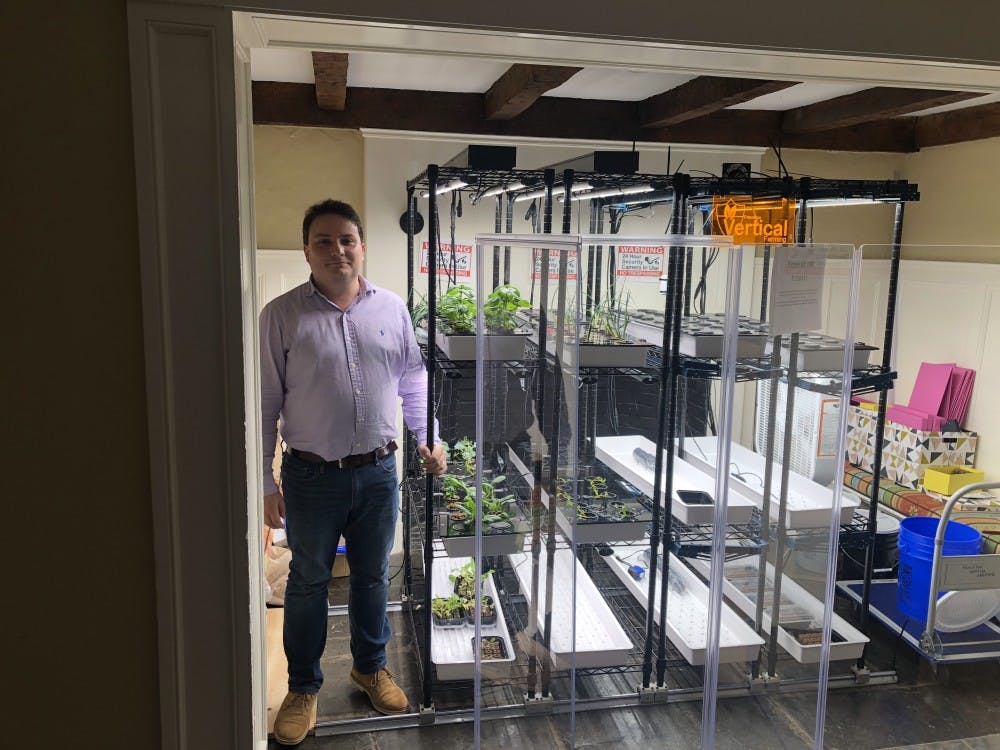Just inside the main lobby of Forbes College, an eerie white glow emanates from an alcove containing a strange contraption covered in signs warning passersby not to get too close.
The Forbes hydroponic farm may look like a portal to another universe, but its purpose is to show students that crops can grow anywhere by demonstrating hydroponics, or the cultivation of crops using nutrient solutions instead of soil. The hydroponic farm is also a fully functioning laboratory where students and staff regularly conduct experiments.
The hydroponics lab is an offshoot of the Princeton Vertical Farming Project, which began in April 2017 in the Forbes downstairs lounge. It seeks to introduce vertical farming concepts to the Princeton community while also conducting vertical farming experiments.
Paul Gauthier, associate research scholar of plant physiology, horticulture, and stable isotopes, runs the research aspect of the hydroponics display. Hydroponics is one of Gauthier’s many research interests.
“When I meet a group of students, I ask them if they want to be farmers, and usually nobody says yes,” Gauthier said, noting that he wants to change perceptions about crop-growing.
Gauthier said a highly visible location such as the Forbes lobby seemed perfect for raising awareness.
That said, much of the team’s experimental and research work is done in the Moffett Laboratory, while the Forbes location is intended to be more visible and presentable to the public.
Gauthier hopes the farm will make students ask more questions about modern agriculture and connect the plants they see with what they eat every day at the University. The project plans to eventually serve some of the produce in the Forbes dining hall.
Korlekuor Akiti ’19 works on the project for her senior thesis for the ecology and evolutionary biology department, and she is also organizing a public tasting of the crops in November.
“There was a lot to be explored with the hydroponic farm,” Akiti said. “People had been looking at the inputs, but no one had been looking at the outputs: the quality of the crops.”
She said that it has been extremely rewarding to see her work running experiments and tending to plants pay off, especially considering the short life cycle of some of the plants, enabling her to see them grow and develop instead of having to wait years.
She is also excited by the prospect of more students learning about agriculture, with the lab so close to their living spaces. As the project develops, she hopes that students will walk into the lobby and see what they will eat that day.

Student reaction to the lab has been positive, with many curious about the purpose of the setup.
“It’s an interesting idea,” Colin Moffet ’21 said. “It will be cool to know that some of the food I am eating in the dining hall was grown in-house.”








